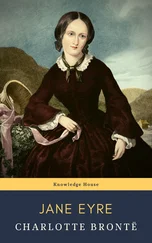Stephen saw that Christopher never paraphrased real events. He did something more mysterious: he made events happen. ‘Christopher, so far from being the self-effacing spectator he depicts in his novels, was really the centre of his characters, and neither could they exist without him nor he without them.’ Isherwood lived in a nimbus of his own fiction, like an illustration in a Victorian magazine showing Dickens at a table with Mr Pickwick and Miss Havisham floating in the air above him; only in Christopher’s case his characters were real people walking about in the same room as himself.
In the early phase of Isherwood’s years in Berlin, he wrote about England. It was painful for him, because he had a profound hatred for that country, which he imagined to be populated by The Enemy – his word for the restrictions of convention.
On one occasion soon after they’d met, Stephen told him a funny story about a recent clash in Oxford between himself and the academics, the patronizing Wykehamists, the future Foreign Office mandarins. Christopher responded violently. He’d like to take all those beautiful places, like Venice or Oxford or Cambridge, and blow them up with dynamite. Not because they were ugly. On the contrary, they were beautiful. But on top of that beauty The Enemy had constructed good taste, appreciation, weighing things judiciously and ending up with nothing. ‘The whole system was to him one which denied affection and which was based largely on fear of sex.’
It was a question of Them against Us. Real feelings were accessible only to the few, said Christopher. ‘The poets, the creative writers, the healers, and a few simple people, workers who express themselves in their work, women who have been truly loved, saints and sensualists – are the lords of life. Everyone else is a slave, and the Happy Few who have really lived their experiences and made them a part of themselves, and who don’t just discuss things and reason about them, know it.’ The slaves could destroy the Happy Few. They could ruin your life, they could ‘hem you in with rules and inhibitions which you almost persuade yourself to accept as necessary’. Stephen mustn’t fall for it. He mustn’t allow the formality of Englishness to smother his emotional life. ‘In England, chastity is a puritan myth. It’s a huge conspiracy to pretend that a whole side of human nature in ourselves and others doesn’t exist.’
Stephen took what he wanted from this diatribe, but neither then nor later did he want to lose contact with England. Nor was he prepared to abandon art galleries and concert halls merely because The Enemy might form part of the audience. Christopher says of himself: ‘He had grown to hate the gushings of concert audiences and the holy atmosphere of concerts.’ This wasn’t true of Stephen, who heard all the great pre-war musicians in Berlin or Salzburg, where he went for a fortnight every summer with Isaiah Berlin, whom he’d also met at Oxford. Isaiah at this point in his life was hesitating about a career as an academic, and he admired the courage with which Stephen threw himself into amorous adventures; and also, a little later, into predicaments that had sombre political implications.
During his earlier visit to Hamburg, Stephen had made friends with the German scholar Ernst Robert Curtius. Plump, cordial, slightly pompous but also affectionate, this man held the keys to German literature, which Stephen had never studied at school. It was also flattering that Curtius admired Stephen as a writer. ‘It is a wonderful thing to meet a young poet, gifted as you are; a child of the sun,’ wrote Curtius soon after they’d met. ‘It has been an unlooked-for revelation.’ He was sure that Stephen’s energy would last, unlike that of most young talent. ‘You have got power – “to run a factory on” – and purity (a purity of a new, much wanted kind). Both these things show in your verse as well as in your person.’ The letter is serious in a very German way, as if their relationship existed beyond their individual participation in it.
The ‘purity’ of which he speaks took into consideration the adventurous life that Stephen had begun to lead in Hamburg. Curtius loved hearing about the bad boys who waited for clients in the bars around the docks of the huge industrial port. Stephen told one story about the experience of being robbed – Christopher later appropriated it in one of his Berlin stories – and Curtius just thought it was amusing. It was neither shocking nor tragic, this scene from the lower depths. It was merely absurd.
Later, thinking about this incident, Stephen tried to understand why he’d found it impossible to think of himself as a victim. Being richer and better educated than the robber, there was a certain Robin Hood justice in being fleeced by him. Even while he was being robbed, Stephen could pity the robber. Stephen’s inner world was inviolable. Whatever was stolen, the robber couldn’t take away the advantages that society had given him.
This generosity of exploitee to exploiter was a kind of selfishness, Stephen thought, as though the robber’s faults were ‘projections of my own guilt’. But being feeble about an unfortunate experience could also become a part of his professional equipment. ‘Within this inner world even weakness could become a kind of strength. It isolated me and disqualified me from other kinds of work than poetic writing.’
My father’s increasing interest in communism from 1931 onwards grew from his fascination with this vast, unfamiliar subculture. He thought that the poor and the underprivileged were in possession of some secret, and he believed without question that communism was on the side of the workers; whereas it was equally obvious that the Nazis were luring the unemployed into vast armies that would be destroyed in a future war. Curtius, who saw this change taking place in Stephen as a result of his life in Berlin, decided that this wasn’t really a political revelation, but a form of sentimentality based on the attraction of the working classes.
It was after a visit to Curtius in November 1931 that Stephen wrote his most famous poem, ‘I think continually of those who were truly great’. Its heroes were the great writers of German Romanticism that Curtius had so brilliantly brought before him. Stephen sent Curtius the poem as soon as it was finished, and Curtius placed it in the context of Stephen’s recent enthusiasm for the workers. It was his best poem so far. It was ‘both particular and grand’, he wrote. It suited him much better than Bolschewismus . He was sure that, with his temperament of a poet and with his sensitivity towards beauty, Stephen would soon see through communism, in the same way that Whitman had seen through American democracy. ‘Your politics are guided by your sense of eroticism and aesthetics.’
In Hamburg and later in Berlin, Stephen fell in love with various boys with whom, throwing caution to the winds, he attempted to create a long-lasting relationship. Being in love heightened his sensitivity to his surroundings, and from that mood his poems could spring. But he was also interested in creating a permanent relationship.
One of the first of these was Harry Giese, a pleasant somewhat dumpy young man (there’s a photo in the Isaiah Berlin Archive in Oxford), and the only reason why they were together was that Harry had asked Stephen to take him away to the countryside, where he thought he could be happier. ‘He has introduced Order into my life,’ wrote Stephen to Isaiah. Harry managed their money (and was more frugal than Stephen), and their days were now blest with ‘Regular Hours’. They met every day for lunch at a quarter to one, and after lunch they played a game of chess. ‘The difficulty with him is that he won’t ever leave me alone, and that bores me awfully.’ He couldn’t stand Harry’s ‘aura of respectability’. ‘I imagined it would be very exciting to have a boy always, but, as a matter of fact, it is very bourgeois and ordinary.’
Читать дальше












